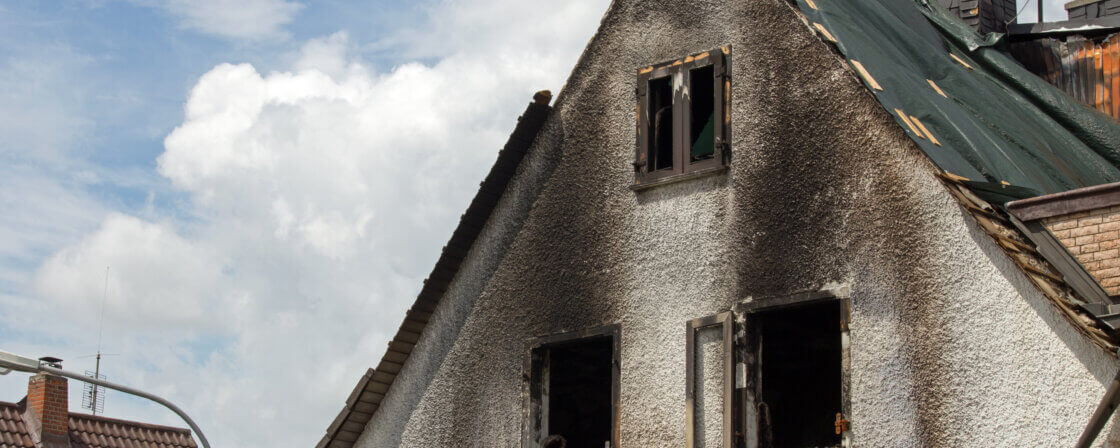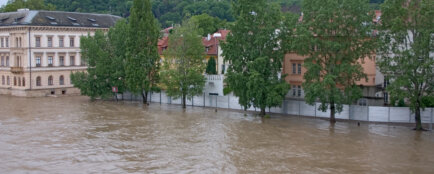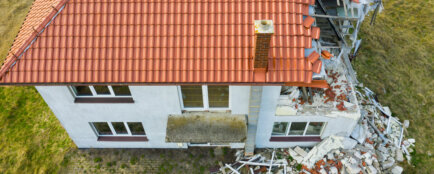Property insurance calculation
The property insurance calculator will help you find the best property insurance that fits your needs and price range. The price you pay for your property insurance may vary depending on the insurance company you choose. Therefore, it pays to do a property insurance quote to ensure you get the best possible terms. There are various comparators and calculators for this, of which you can find a number on the web.
However, the basic factors that affect the amount of your policy are more or less similar for all insurance companies. The following factors affect the calculation of property insurance:
- The value of the property and equipment: a higher value means a higher sum insured and therefore a higher cost of insurance. The value is influenced by the materials used and the size of the property, for example, but also by the location of the property, which we will discuss later.
- Age and condition of the property: Older homes may have a higher risk of damage due to wear and tear on the materials, which can also lead to higher insurance prices. In general, however, the age and condition of the house can only be factored into the price of the policy for certain coverages, and only if they have a direct impact on the resilience to various elements.
- Location of the property: properties in flood-prone areas or areas with a higher risk of natural disasters usually have higher premiums. Similarly, a location with a higher crime rate can mean a higher insurance price. For example, a property’s prestigious address, i.e. location in a so-called “better” neighbourhood, can also affect the price of the property. The latter, on the other hand, is often safer, so this factor is not entirely straightforward.
- Type and use of the property: flats in apartment buildings may have a different insurance price than houses. For apartments, the floor on which the apartment is located may also play a role. Lower floors are worse off in this respect, as there is a higher risk of burglary, water leakage from neighbours, or even flooding if it is a flood plain.
Tip for article
Tip: Living in an apartment can involve three policies at the same time: insurance for the apartment unit, home insurance and insurance for the common parts of the house. So read on to find out how to get condo and condominium insurance.
- Security measures: the existence of a security system or other protective features can significantly reduce the cost of insurance. Of course, we are talking about risks related to criminal activity.
- Previous insurance history: owners who have frequently drawn on insurance in the past may face higher premiums due to the increased risk.However, this principle typically applies to other types of insurance (accident) and is more likely not to be encountered in property insurance.
- Specifics of construction: the material and quality of the construction can affect the risk of damage. For example, timber buildings may be considered a higher fire risk.
- Purpose of use: Commercially used properties may have higher premiums due to increased traffic and risk of damage.
- Additional Coverages: The cost typically increases with the addition of other coverages such as natural perils or third-party liability insurance.
- Benefit amount and deductible: This is the single most important item that will affect the final cost of the policy. However, the amount of the benefit is determined by a combination of the previous factors and is already included in them. The deductible rate is an essential component of the price: the higher the deductible, the less you pay in preventative costs.
Are you solving a similar problem?
Solutions Tailored for You
Our team of experienced attorneys will help you solve any legal issue. Within 24 hours we’ll evaluate your situation and suggest a step-by-step solution, including all costs. The price for this proposal is only CZK 690, and this is refunded to you when you order service from us.
I Need help
- When you order, you know what you will get and how much it will cost.
- We handle everything online or in person at one of our 6 offices.
- We handle 8 out of 10 requests within 2 working days.
- We have specialists for every field of law.
Each of these factors may contribute to the individually determined cost of insurance. These factors may not affect all insurers, so it is a good idea to check the calculations of different insurers.
Insurance calculators are used to quickly and easily estimate the cost of property insurance. They allow you to enter various property parameters such as size, location, value and type of construction, and provide an approximate premium estimate based on this information. Many insurance companies allow you to enter a quote on their site before you enter into direct negotiations with them. Often, however, you will not receive the final amount until after you have entered your personal contacts, so you will not be able to avoid negotiating with an insurance agent after all.
When choosing an insurance company, it’s important to consider not only the price, but also the quality of the coverage. To get the best property insurance, you need to compare quotes from different insurance companies to find the one that gives you the best value for money.
Tip for article
Tip: Property insurance is typically taken out when you become a property owner, as it protects your property against unforeseen events such as fires, floods, theft or other damage. There are different types of insurance to suit specific needs and property types. Which policy to choose and how does the insurance process work? We’ll cover that in our separate article.
How to choose the right insurance company?
When choosing the right insurance company, many people are influenced primarily by the amount they will pay. However, it is also important to consider the financial stability of the insurance company, the range of cover offered, the quality of customer service or the experience of other clients. You should also find out how quickly and efficiently the insurer handles claims.
How to influence the amount of the policy?
The age and location of the property no longer affect the policy. You can influence its physical condition to some extent. However, there are other factors that you can use to influence the amount of the policy.
To achieve a lower policy price, you can:
- Consider a higher deductible: With a higher deductible, premiums can go down.
- Improve security measures: Installing security systems can reduce risk and therefore reduce the cost of premiums.
- Optimize insurance coverage: Consider whether you need all the insurance products offered. On the other hand, it is crucial not to sacrifice essential aspects of coverage to achieve a lower premium price.
- Review the insurance policy regularly: Updating your contract may reveal unnecessary coverages.
- Take advantage of discounts and promotions: some insurance companies offer discounts for new clients or when you take out a policy online.
- Compare quotes from different insurers: as mentioned earlier, using online comparison sites can help you find a better deal.
You may be able to compare insurance rates, which can help you find better deals on insurance policies
Don’t underestimate the issue of underinsurance and overinsurance on a property. Underinsurance occurs when the sum insured is less than the actual value of the property or assets. While you may be happy to pay only a thousand a year instead of two thousand, in the event of a loss the insurance company may only pay part of the cost of repair or restoration, which can mean a financial loss many times greater.
On the other hand, excess insurance means that the sum insured is higher than the actual value of the property. While this may seem like an advantage at first glance, in reality the owner is paying higher premiums for coverage they don’t need. In the event of a loss, the insurance company will only pay compensation up to the actual value of the property.
Properly determining the value of the property and assets is therefore key to effective insurance. It is advisable to update the property value in the insurance policy periodically, especially after significant changes such as renovations or extensions to the property.
Insuring a property in a flood plain
We have already mentioned that the location of a house in a flood zone can significantly swing the amount of the insurance policy. When insuring a property in a flood zone, it is important to choose an insurance company that offers special coverage for flood-related risks.
Also consider taking preventative measures, such as flood proofing or building higher off the ground, which can reduce the risk and therefore the cost of insurance. Insuring a property in a flood zone is one of those that can really pay off.
How can you avoid spending unnecessary amounts on paying for insurance?
To determine the best insurance for your property, first of all, assess your needs and the real risks to the property. Is it really necessary to insure against flooding a villa that stands on the highest point of the city?
And speaking of floods: do you have any idea what the difference between a flood and a flood is? A flood is the inundation of an area by water that has spilled from the banks of watercourses or reservoirs (dams and ponds) or that has breached these banks and dams. Flooding, on the other hand, is the creation of a continuous body of water that stands or flows for a period of time and can be caused by sources other than watercourses, such as ice melt. The two terms, which sound interchangeable to most people, can be quite crucial in the context of damage management. So don’t underestimate the importance of reading the explanations of each term and ask exactly what your policy covers. Also consider consulting with an insurance agent other than the one representing the particular insurer (preferably an independent one), and it is in their interest to sell you the most comprehensive policy possible.
If you want to get the best property insurance, we recommend that you review your policy regularly and consider optimizing the coverage you really need.
Tip for article
Tip: Check with your HOA how your house is insured. If you have a really good insurance for the whole house, you may not need further insurance for the unit itself. However, banks require insurance for the housing unit when arranging a mortgage for the purchase of a home. In this case, a reference to the house insurance is definitely not sufficient. In addition, in the case of a mortgage, it is advisable to separate the home insurance policy from the apartment policy (i.e. do not take out both as a package) in order to be able to dispose of them more easily.
How is the insurance paid?
Generally, the policy is paid either monthly, quarterly, semi-annually or annually, depending on the agreement with the insurance company. However, for property insurance, we most often see an annual payment, which is usually spread over two semi-annual payments on request.
If you forget to pay the premium, your insurance cover may be suspended. Insurance companies usually send a reminder before the policy due date and a reminder if the policy has not been paid properly. They also usually provide a grace period during which premiums can be paid without losing coverage. However, if payment is not made after this period, the policy may be terminated and you will not be entitled to claim in the event of a loss. It is advisable to set up automatic payments to avoid forgetting to pay.
Tip for article
Do you want to change insurance companies because of unsatisfactory conditions? Or have you discovered an offer that is much better? Read on to find out when you can terminate your insurance policy.
Summary
The cost of insuring a property depends on several factors, including the value and age of the property, its location, construction, security measures and other parameters. Basic factors such as the size of the property, its condition or location have a direct impact on the cost of the policy, while options such as higher deductibles or improved security can help reduce the cost. It’s also important to review your insurance policy regularly and use insurance comparators to find the best deal. When insuring a property in a flood plain, it is important to consider the risk of flooding and choose appropriate cover. To be effective, it is essential to correctly determine the value of the property and avoid underinsurance and overinsurance.




